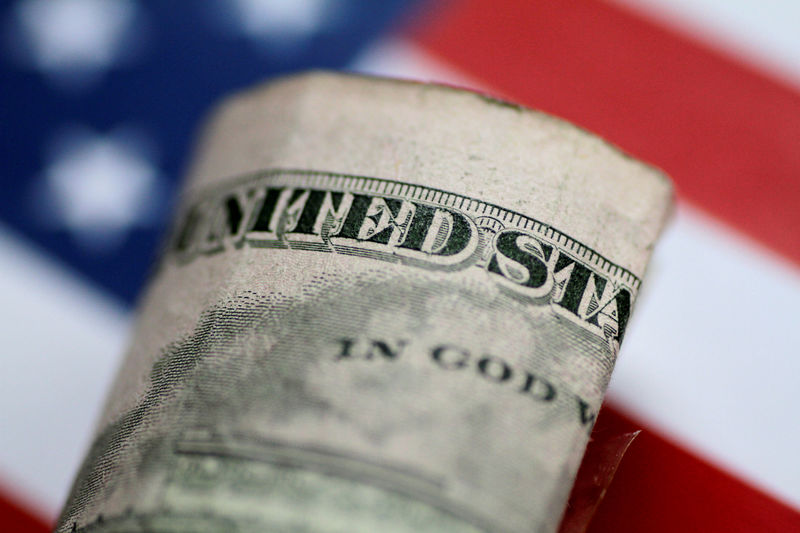Investing.com -- On Tuesday, the US dollar edged lower despite short-dated US rates holding steady, influenced by a broader decline in cross-market volatility and a growing appetite for risk among investors. This shift is partly attributed to the anticipation of a soft US economic landing, a scenario that investors are positioning for ahead of the upcoming core PCE inflation data release.
The core Personal Consumption Expenditures (PCE) price index for April is scheduled for release on Friday, with market consensus predicting a modest 0.2% increase month-on-month. This figure, which aligns with previously released April Consumer Price Index (CPI) and Producer Price Index (PPI) data, is pivotal as it could reshape expectations for a potential Federal Reserve rate cut in September, currently estimated at a 44% likelihood. A confirmation of benign inflation could further pressure the dollar.
Today's economic calendar will reveal March house price data and May consumer confidence figures. The latter is particularly noteworthy as consumer confidence has been on a downward trend since January, raising concerns about whether spending by the top 20% of income earners can continue to compensate for the lower 60%'s economic challenges. ING has suggested that higher interest rates might eventually dampen consumer spending and slow US growth throughout the year.
The US Dollar Index (DXY), a measure of the currency against a basket of other major currencies, is approaching a critical support level at 104.40. This threshold represents the lower boundary of the dollar's rally this year. A drop below this point could signal that investors with long dollar positions may start to reduce their exposure in anticipation of the significant data release at the end of the week.
This article was generated with the support of AI and reviewed by an editor. For more information see our T&C.
